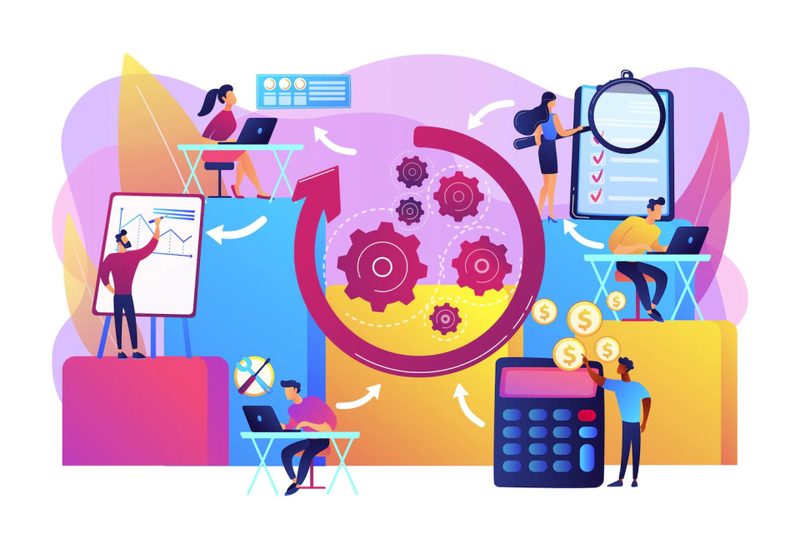Workflow automation is an approach to business process management that allows organizations to manage their IT infrastructure, applications and data in order to reduce costs and improve efficiency. The goal of workflow automation is to improve customer service through the use of technology by automating manual processes or replacing them with automated systems.
What is Workflow Automation?
Workflow automation is a set of rules, which are triggered by an event. A workflow is a series of steps that need to be performed in order for something to happen. For example, if you want someone from your team at work to send you an email when they receive a new piece of information about your project then this process could be automated using workflow automation software.
Workflow automation can be used for many purposes and has been around since the early 2000s but it hasn't gained much traction until recently due to its flexibility and ability to streamline repetitive tasks within business processes such as sending emails or generating reports via spreadsheet software (e.g., Microsoft Excel).
How Can Workflow Automation Help in Retail CRM?
Workflow automation can help improve customer service, sales, marketing and supply chain. It also helps in operations and the customer experience. You can use workflow automation to automate repetitive tasks that are time-consuming or inefficient to complete manually. For example:
Sales – When you want to send out invoices for each sale made by your staff at the end of each day or weekMarketing – When you need a list of customers who have recently purchased something from your storeSupply Chain – For tracking inventory levels across different departments within your companyBenefits of Workflow Automation in Retail CRM
A workflow automation solution can help reduce manual tasks, improve customer service and sales, increase employee productivity, and reduce errors and costs.
Improved Customer Satisfaction: Workflow automation allows you to create automated processes that are more efficient than traditional methods. This means that you will be able to respond faster when customers have questions or concerns about their orders or delivery issues.Increased Employee Productivity: Using an automated system for CRM tasks allows employees to focus on what matters most without being bogged down by tedious clerical work like entering data into Excel spreadsheets or making phone calls every time they need something new added to their email inboxes (see below). They also don't have as many distractions so they get more done each day!Reduced Errors & Overhead Costs: With fewer mistakes made during the process itself such as entering incorrect information into a spreadsheet because there weren't any safeguards in place before someone started working with it again later on down the line; this also helps save money as well since fewer mistakes mean less expense overall after everything has been accounted for properly."Workflow Automation for Customer-Focused Businesses Boost Sales
The first step to improving customer service and optimizing sales is by automating the processes that help you serve customers more efficiently. One of the most important tasks for any retailer is ensuring that their customers have a positive experience when they visit the store. Workflow automation can help retailers improve customer retention, acquisition, and loyalty by helping them deliver personalized experiences at each interaction stage, thereby reducing turnover rates while also increasing average order value per visit.
By using workflow automation in conjunction with other technologies like artificial intelligence or chatbots, you'll be able to provide a better experience for your customers by removing any barriers between them and what they need and then delivering it faster than ever before
Conclusion
Retail CRM is a combination of all the processes that touch customers from the moment they come in until when they leave. Processes such as order processing, inventory management, and sales forecasting are essential for success in retail, but so are customer service and loyalty programs. These processes can be automated through workflow automation to help retailers better serve their customers and increase sales.


